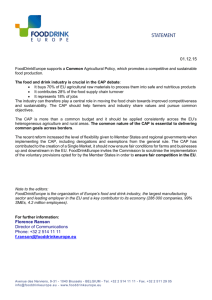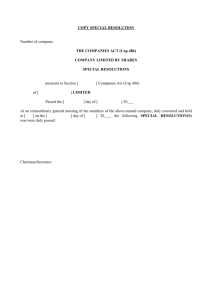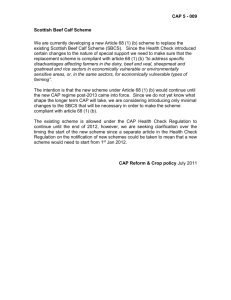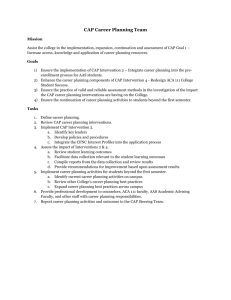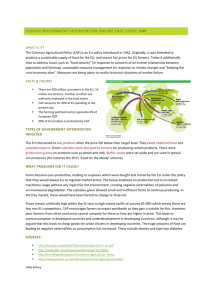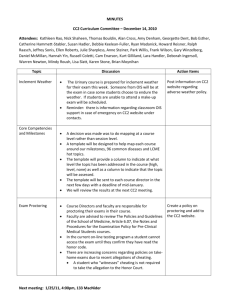Water Security and climate change factsheet_2 pager_14 feb 2011
advertisement
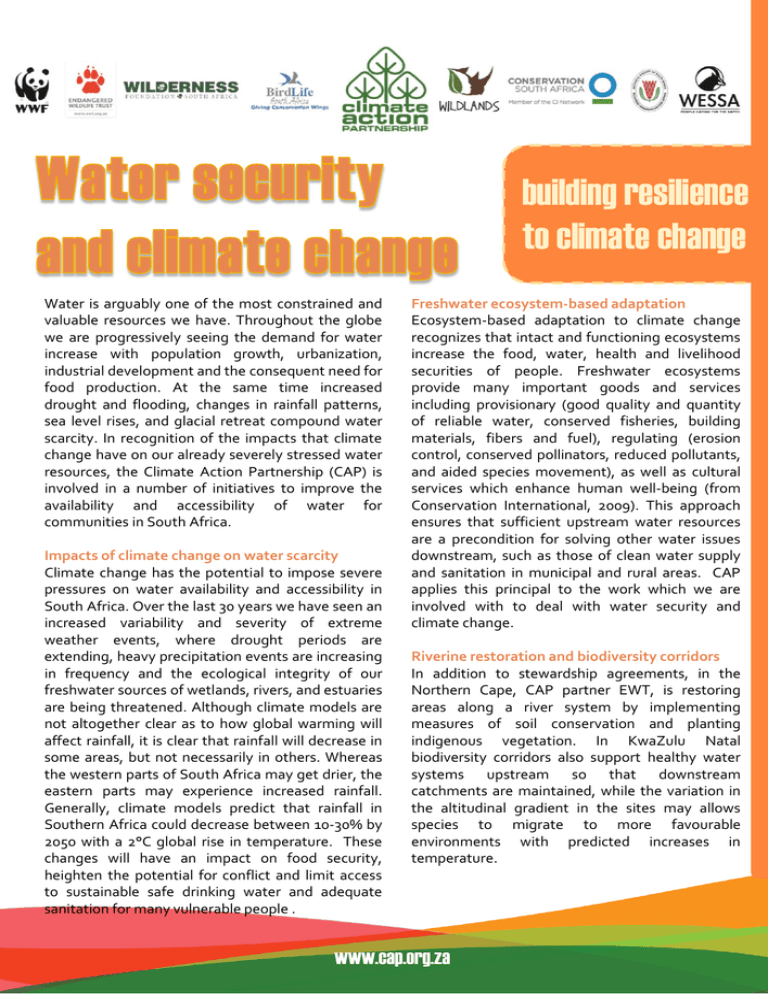
building resilience to climate change Water is arguably one of the most constrained and valuable resources we have. Throughout the globe we are progressively seeing the demand for water increase with population growth, urbanization, industrial development and the consequent need for food production. At the same time increased drought and flooding, changes in rainfall patterns, sea level rises, and glacial retreat compound water scarcity. In recognition of the impacts that climate change have on our already severely stressed water resources, the Climate Action Partnership (CAP) is involved in a number of initiatives to improve the availability and accessibility of water for communities in South Africa. Impacts of climate change on water scarcity Climate change has the potential to impose severe pressures on water availability and accessibility in South Africa. Over the last 30 years we have seen an increased variability and severity of extreme weather events, where drought periods are extending, heavy precipitation events are increasing in frequency and the ecological integrity of our freshwater sources of wetlands, rivers, and estuaries are being threatened. Although climate models are not altogether clear as to how global warming will affect rainfall, it is clear that rainfall will decrease in some areas, but not necessarily in others. Whereas the western parts of South Africa may get drier, the eastern parts may experience increased rainfall. Generally, climate models predict that rainfall in Southern Africa could decrease between 10-30% by 2050 with a 2°C global rise in temperature. These changes will have an impact on food security, heighten the potential for conflict and limit access to sustainable safe drinking water and adequate sanitation for many vulnerable people . Freshwater ecosystem-based adaptation Ecosystem-based adaptation to climate change recognizes that intact and functioning ecosystems increase the food, water, health and livelihood securities of people. Freshwater ecosystems provide many important goods and services including provisionary (good quality and quantity of reliable water, conserved fisheries, building materials, fibers and fuel), regulating (erosion control, conserved pollinators, reduced pollutants, and aided species movement), as well as cultural services which enhance human well-being (from Conservation International, 2009). This approach ensures that sufficient upstream water resources are a precondition for solving other water issues downstream, such as those of clean water supply and sanitation in municipal and rural areas. CAP applies this principal to the work which we are involved with to deal with water security and climate change. Riverine restoration and biodiversity corridors In addition to stewardship agreements, in the Northern Cape, CAP partner EWT, is restoring areas along a river system by implementing measures of soil conservation and planting indigenous vegetation. In KwaZulu Natal biodiversity corridors also support healthy water systems upstream so that downstream catchments are maintained, while the variation in the altitudinal gradient in the sites may allows species to migrate to more favourable environments with predicted increases in temperature. www.cap.org.za Sustainable land management CAP projects throughout South Africa aim to rehabilitate freshwater systems, and reforest areas through planting indigenous vegetation, which improve the soil’s water holding capacity. CAP’s partners connect and conserve areas through stewardship partnerships with private and communal landowners, where management guidelines are written outlining ways of improving water usage with the potential threats of climate change in mind. Partnerships with farmers involve reducing stocking to prevent overgrazing, installing water pumps and fixing leaking water points, removing alien vegetation along catchments, fire management, grassland management and education around wetland management. These activities will increase the stream flow and quality of the water over time in the Northern Cape and KwaZulu Natal. The improved management of wetlands and restoration of peatlands will also lead to the which storage of carbon. For more information please contact: Sarshen Marais Climate Action Partnership coordinator s.marais@conservation.org tel: +27 21 799 8834 fax: +27 21 762 6838 Centre for Biodiversity Conservation Kirstenbosch Botanical Gardens Private Bag X7 Claremont 7735 Engagement with government, industry and schools CAP also deals within the agricultural, business, educational and developmental spheres for climate change and water management. Through Green Choice and WWF’s Water Neutral Scheme, CAP deals with the business sector by approaching producers and retailers of food to promote sustainable farming practices and offsetting water usage. Through the Eco-Schools program, CAP is educating and building the capacity of future leaders of our country. CAP engages with governments through its partners by advocating and advising them on incorporating climate change models into planning which will ensure sustainable livelihoods and resource use for their citizens. Lastly, CAP assists communities in adapting to increasing water scarcity due to climate change through participatory approaches, where farmers may choose alternative farming practices to secure their yields, such as using rainwater collection tanks for livestock and irrigation, or growing drought resistant crops. In conclusion, CAP recognizes the need to draw on the services that our ecosystems provide to buffer habitats and communities against a changing climate and increase water scarcity. Water resources are not insufficient to carry the human population, but rather it is the way water is managed by human communities that threatens our ability to maintain our current practices. We need to make a concerted effort to shift our planning and development to support a sustainable pathway and ensure the protection of our ecosystems and their services on which we depend. www.cap.org.za
